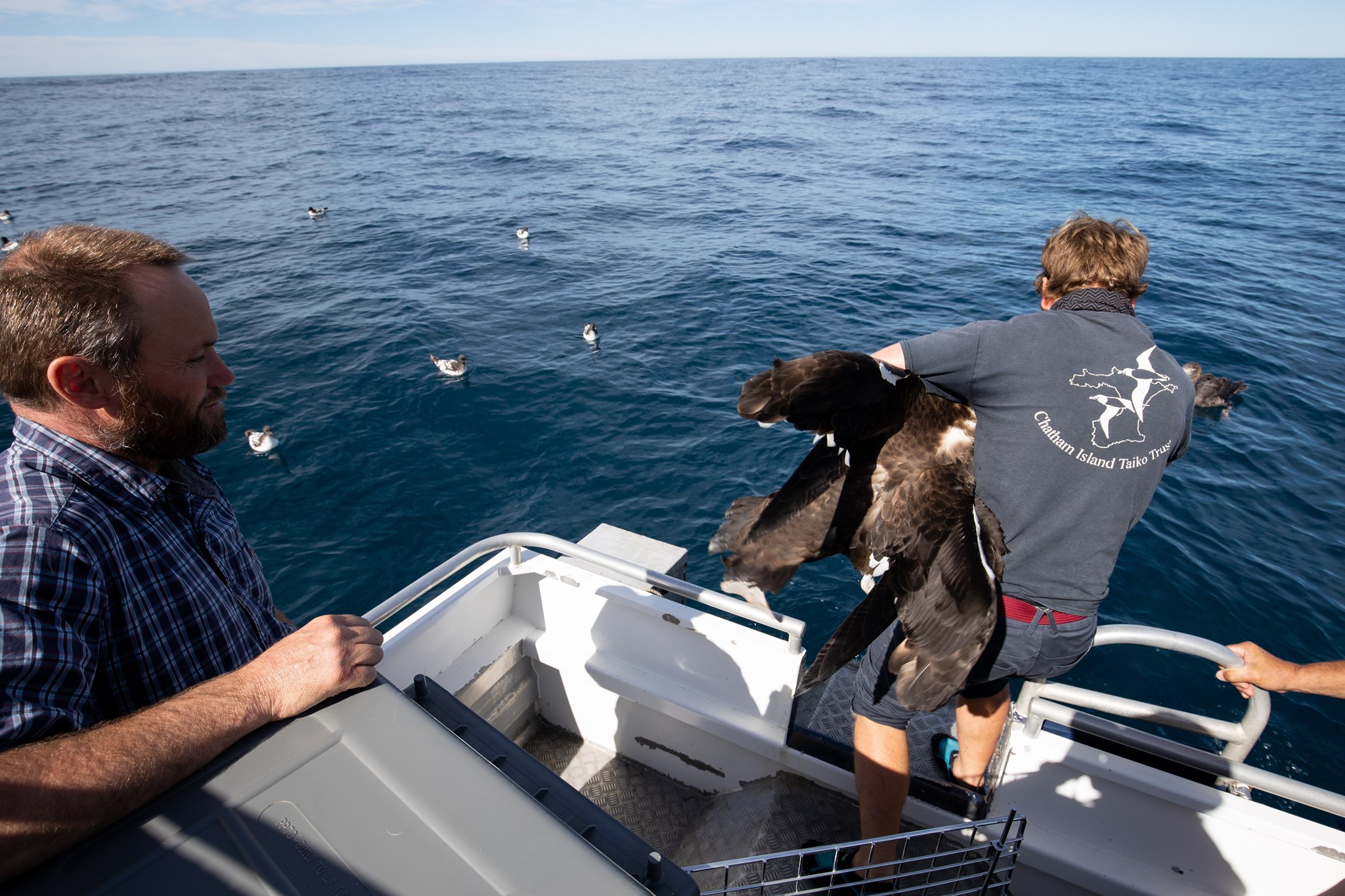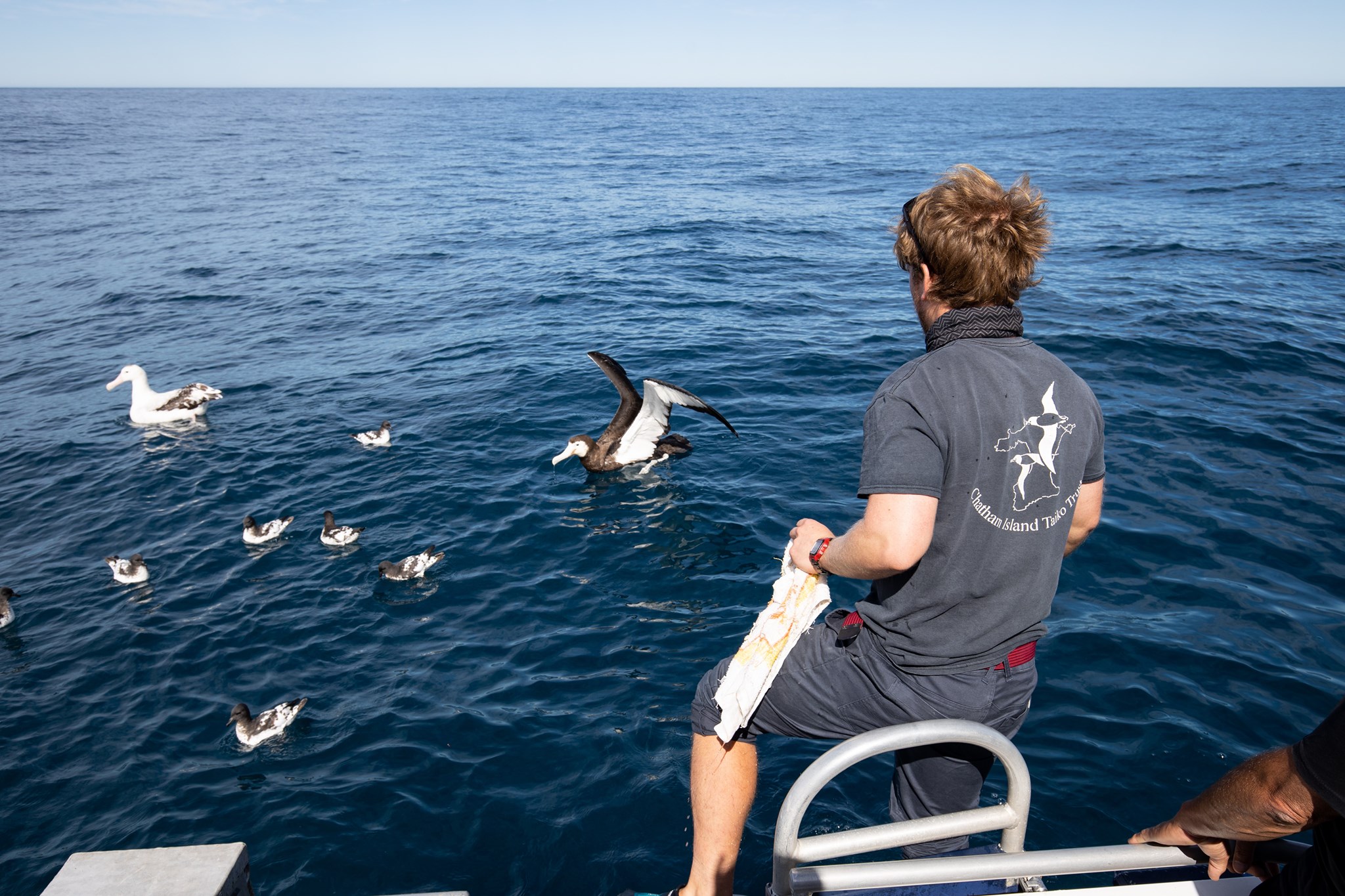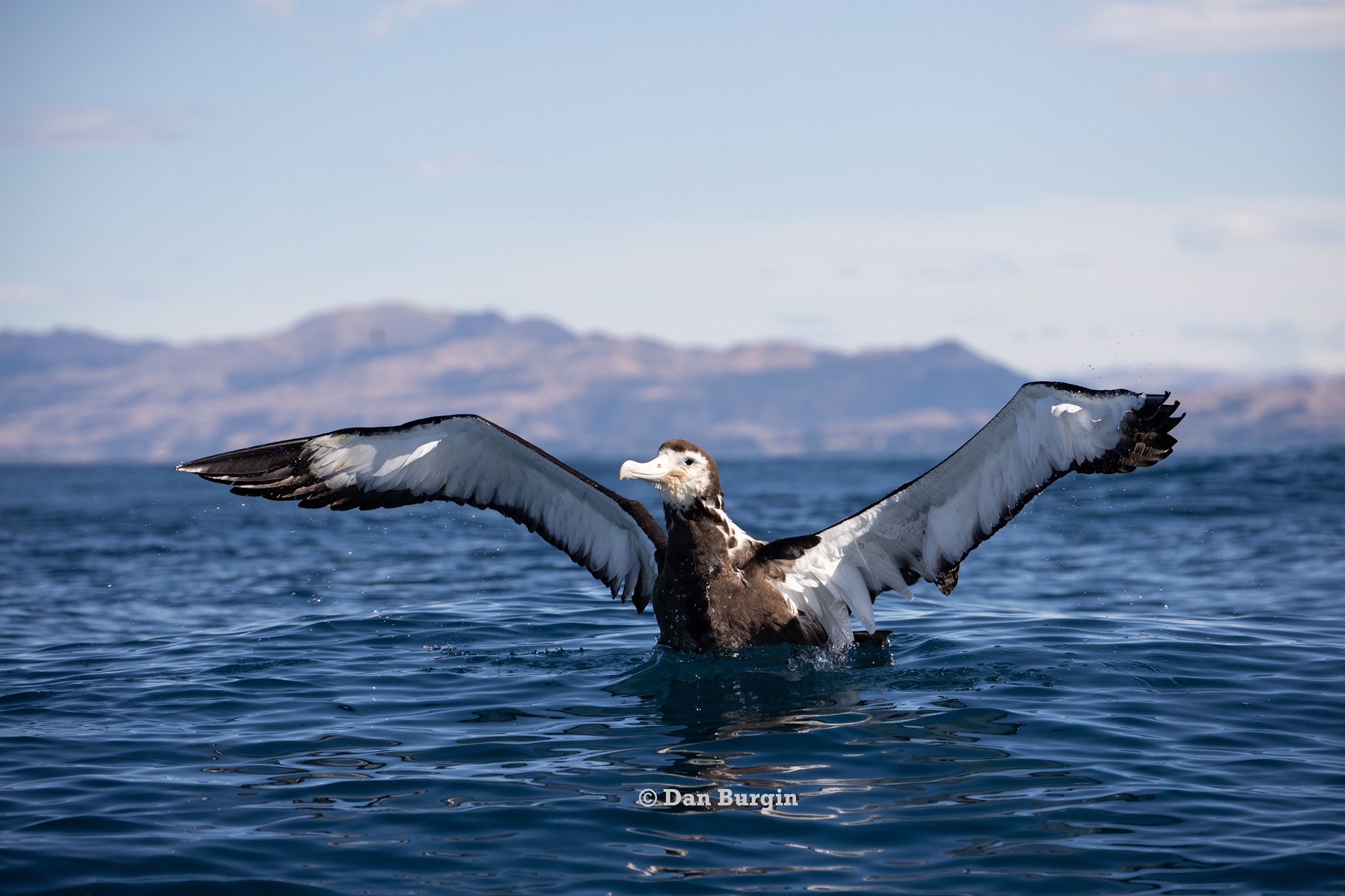
The young Antipodean Albatross spreads its wings after release, photograph by Dan Burgin, Wildlife Management International (WMIL)
A young Antipodean Albatross Diomedea antipodensis assigned to the gibsoni subspecies was brought in by the crew two days after landing aboard the fishing vessel Santa Rosa off the West Coast to the EcoWorld Aquarium & Wildlife Rehabilitation Centre in Picton, South Island, New Zealand. Mike Bell of Wildlife Management International (WMIL) states on the Centre's Facebook page: “She is a young female albatross from this years breeding season. She was obviously very lethargic and weighed only 4.9 kg when she should be at about 7 kg in weight”. Affectionately named Rosa, the albatross spent three weeks in captivity while it got back to a healthy weight, being fed on donated salmon and squid. Following banding, the albatross was released on 29 March out at sea off the coast of Kaikoura from an Albatross Encounter Kaikoura tour vessel by Mike Bell and Dan Burgin of WMIL.
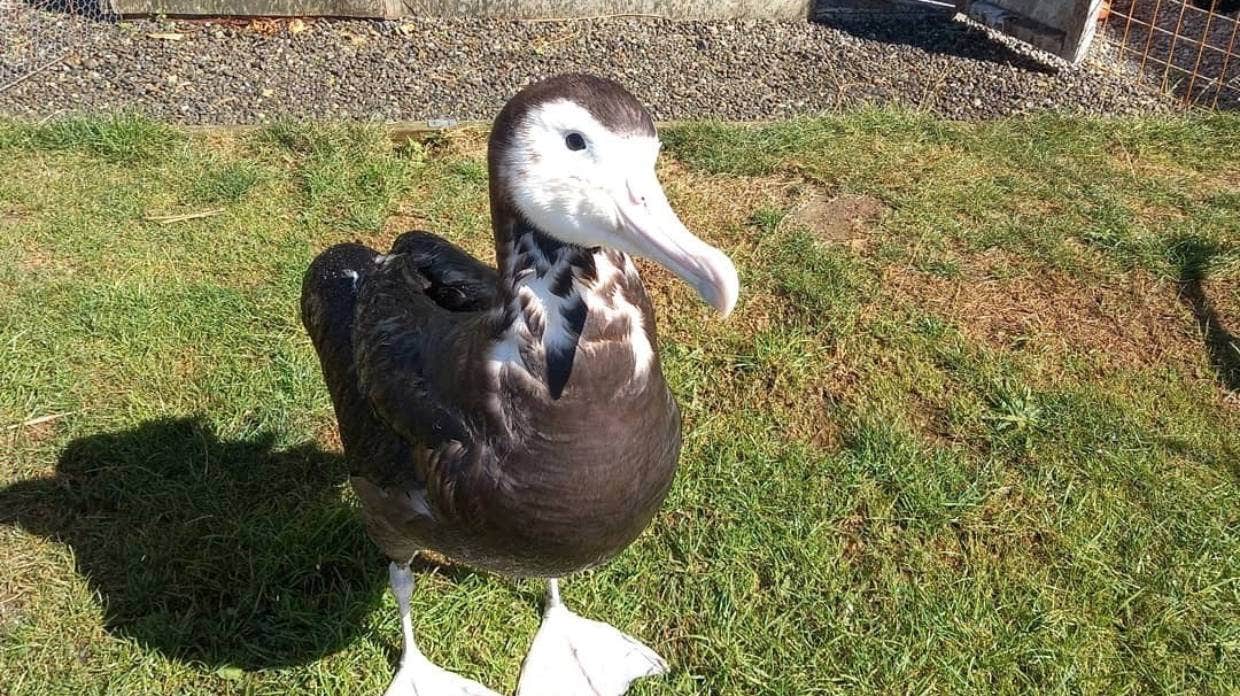
Ecoworld biologist Sarah Nooy holds Rosa, the young Antipodean Albatross (right)
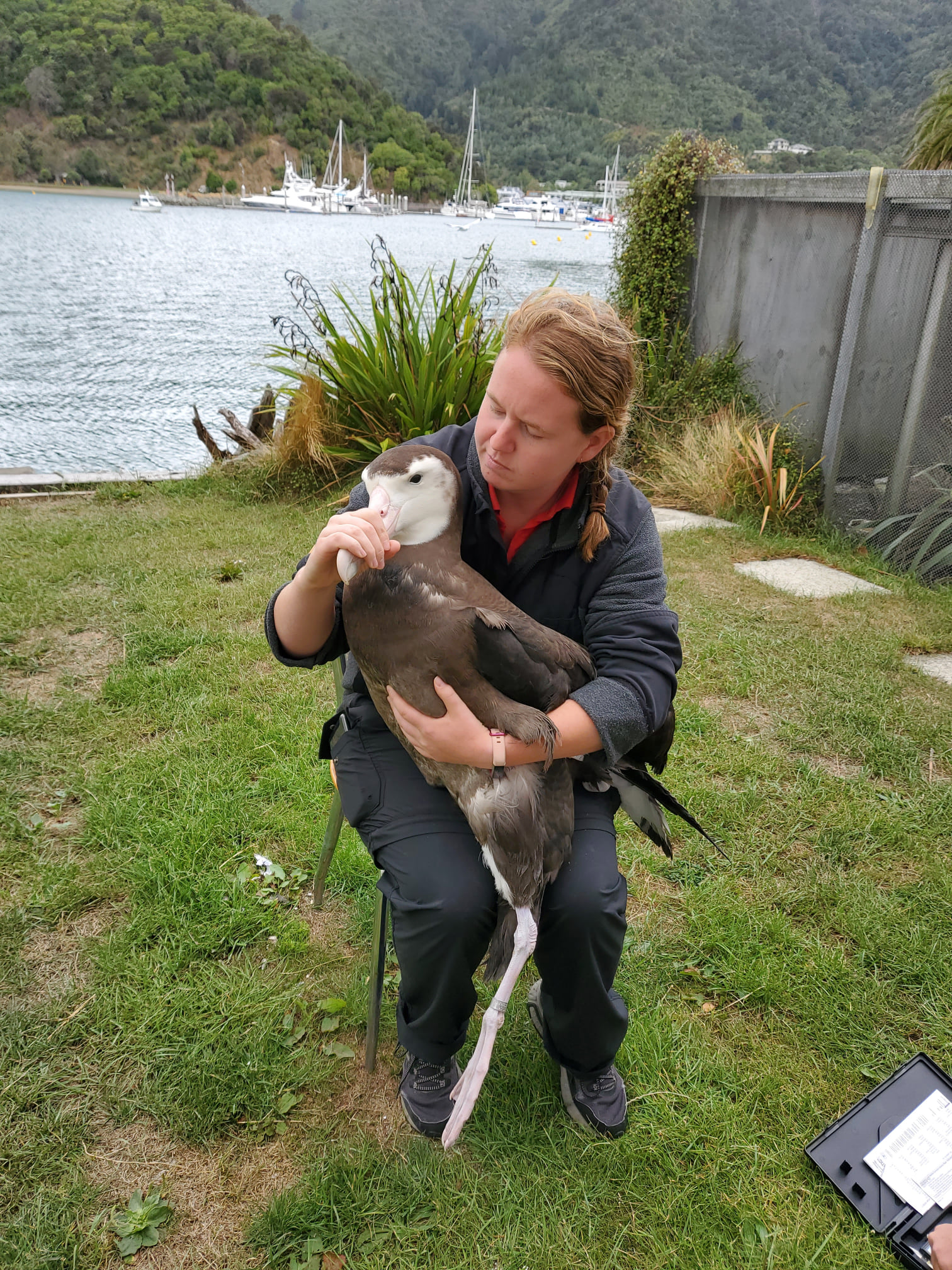
According to Wildlife Management International’s Facebook page the globally Endangered and Nationally Critical bird “spent a good amount of time bathing before swimming off. Here’s hoping we get a band resighting at her breeding colony in years to come, but she has a long way to go still facing a myriad of threats out at sea.” Read more here.
The Antipodean Albatross gets released at sea, photographs by Tracy McKeown, Albatross Encounter Kaikoura
A similar-looking young Antipodean Albatross “very dehydrated, very hungry and near death” on arrival was treated at New Zealand's South Island Wildlife Hospital, but died while still in care (click here).
John Cooper, ACAP Information Officer, 04 April 2021, updated 05 April 2021

 Español
Español  English
English  Français
Français 